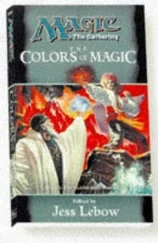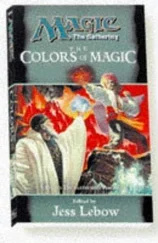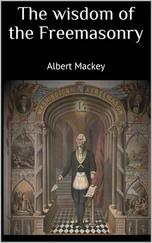“Show me the letter,” said Karamallah, ever more captivated. He had not been mistaken — the afternoon was indeed turning out to be prodigiously entertaining.
The young man hastily pulled the letter from his pocket and held it out to Karamallah with all the trust his intelligence inspired. Karamallah grabbed it and began to read. And as he proceeded, his face expressed intense contentment, giving the impression he was reading a passionate epistle from a prepubescent mistress of noble birth. This went on for quite some time and it seemed to his visitors that the master couldn’t get enough of the pleasure the letter was giving him.
“What a delectable letter!” Karamallah said at last, guffawing. “Obviously it doesn’t tell me anything new about that developer of ruins — his name is a byword for scum. However, I didn’t know that his accomplice — the minister’s corrupt brother, so renowned in the circles of legalized fraud — could write such a masterpiece of black humor. There’s enough in here to keep me happy for days.”
Nimr remained in suspense for a moment more; then his face fell — he was as disappointed as a thief who, having stolen some jewels reputed to be of great value, suddenly realizes that they are paste. There was nothing grandiose in Karamallah’s conclusions about so serious a matter, nothing likely to increase Nimr’s prestige in the eyes of his former student. He’d really wanted to show Ossama what educated people he frequented, wise men able to solve the most difficult of problems. But this letter — even with its explosive contents — had only managed to amuse the master. Despite this letdown, Nimr did not lose hope and he made a face to indicate to Ossama, who was likewise dazed with incomprehension, to be patient.
“We were hoping, Master, that you would tell us what to do with this letter,” Nimr ventured. “Shall we bury it in this cemetery or should we drop it like a bomb on the city? Don’t you think that newspapers would pay a pretty price for a copy? There’s a first-class scandal in it.”
“Nimr, my brother, though you are at the peak of your profession, permit me to inform you that this letter will not provoke a scandal of any consequence, because crime in the highest echelons of society is tolerated in every country in the world. The people are accustomed to this kind of exploit; they even applaud it. In my opinion we need to find something else. Something original, and above all agreeable. There’s no point in giving such a gift to imbeciles. Let’s keep it for ourselves.”
“What do you suggest we do?”
“I don’t know yet. The whole thing is so grotesque that it should lead us to come up with some grandiose solution. And one that is as hilarious as possible.”
These last words heartened Ossama, who had been fretting because of Karamallah’s lack of gravity about his discovery. But finally the master had committed himself — in his own way, it’s true — to finding a solution to the problem this letter posed; that it looked to be a bizarre solution should have shocked Ossama but that prospect, oddly, seemed even more appealing to him, and not lacking in destructive ferocity. So, after having traipsed through muddy alleyways, his visit to this remote cemetery had not ended in failure. He was beginning to fall prey to the ineffable charm of his host, this inexplicable charisma — part haughtiness and part inner joy — of a man who lived in a mausoleum. Rather than indifference, how did such a macabre environment produce this tremendous vitality in the service of scorn? It was a sign of a mind that moved in a space freed from all the useless prejudices that darkened the lives of men. Suddenly Ossama again became aware of his own foolishness at not having been able to detect the laughable side of the sufferings that had weighed on him in his youth. Karamallah was most certainly the prophet of a great eccentric battle against the official agents of deceit.
Karamallah was smiling with glee at the thought of resolving a crisis of national import. He had always trusted in chance. Welcoming his visitors earlier, he was sure they’d been about to bring from the boisterous capital some new and unique versions of human stupidity likely to amuse him. But he hadn’t been prepared for such a feast as this.
“I’d like to meet this Suleyman,” he said. “A conversation with this man would be especially delightful. A real treat for the mind.”
“What do you mean?” Nimr asked worriedly.
“Don’t you think that a man who is capable of annihilating fifty people by skimping on construction materials, all for the sake of accumulating more money, must be good company?”
“Master, kill me if you must, but by Allah, explain yourself!”
“Listen. This man represents all the infamy in the world. Until now, my only knowledge of him was from what I read in the papers. With this providential letter, I might have the chance to see him up close. One always learns something from rubbing shoulders with infamy!”
“What can you learn from this man without honor?”
“My dear Nimr, that is yet another prejudice that should be tossed in the trash. Honor is an abstract notion, invented like everything else by the dominant caste so that the poorest of the poor can boast about having a phantom good that costs no one anything.”
“But wait!” cried Nimr. “You have just stripped me of the only marketable thing I still possess. I am now poorer than when I got here.”
“I confess I don’t see the relation between my concept of honor and your sudden poverty.”
“It’s like this,” answered Nimr: “I’ve often heard people say that their honor was not for sale. I thought that sooner or later someone would offer to buy mine. You’ve just deprived me of the most profitable transaction of my life.”
“Don’t worry. You can always sell your honor. Not everyone knows what I just told you; only a few of us do. You can relax.”
“I agree,” said Ossama, coming out of his shell. “I’ve learned so many things in such a short time that I will leave here much richer, even though I’ll leave without honor. But what does honor matter if I got to meet a man like you?”
Karamallah looked at Ossama as if he were seeing him for the first time. He had been so fixated on the letter that had been opportunely submitted to his wisdom that he had forgotten who its industrious supplier was. This young thief, Nimr’s ill-fated pupil, had managed to escape his teacher’s miserabilism with a sartorial strategy that allowed him to steal from the rich. He had instinctively grasped the flaw of a society based on appearance. This was worthy of Karamallah’s esteem.
“I know I can count on you,” he said to his young visitor with a surge of that fraternal feeling he reserved for those of his kind. “To begin with, we can use this letter to pressure Suleyman to accept meeting us in public, at a café in town. It is always worthwhile to converse with an individual of this sort. This is how one learns that infamy has no bounds.”
“I am at your service,” said Ossama. “What should I do?”
“Come see me tomorrow. Together we’ll form a joyous battle plan to fight this evil developer of debris.”
“I would love such a battle,” Ossama assured him.
Nimr raised his arms to the ceiling, as if asking a favor of the heavens, but it was only a natural gesture in the face of the insufferable. He was incensed by the shameless and inexplicable complicity between Karamallah and his former pupil.
Atef Suleyman, the developer famous for modern urban genocides, did not wear the sign of infamy on his forehead, but this oversight of nature did not prevent the numerous inhabitants of the apartment buildings constructed by his real estate company from cursing him day and night; nor did it keep certain extremists from calling for his immediate death. Unfortunately, these invectives — from an acrimonious populace deprived of an education in economics that would have allowed them to appreciate the beauty of capitalism — never managed to reach the person at whom they were directed. Suleyman lived in splendor in the residential district of Zamalek, several kilometers from those planned communities that had sprung up in the desert where he practiced his lucrative business. Frustrated by the resilience of the Pharaonic monuments, he saw himself as a developer for the era of ephemeral buildings — symbols of modernity — that would leave to posterity
Читать дальше












